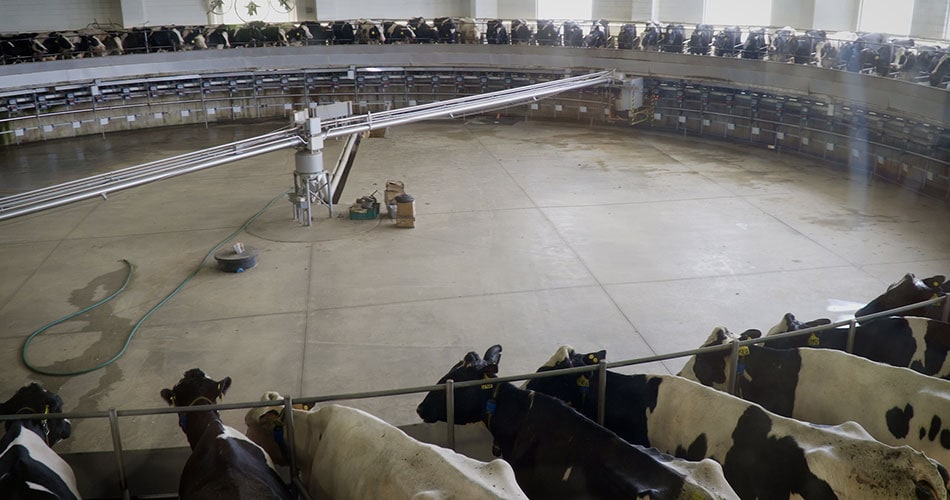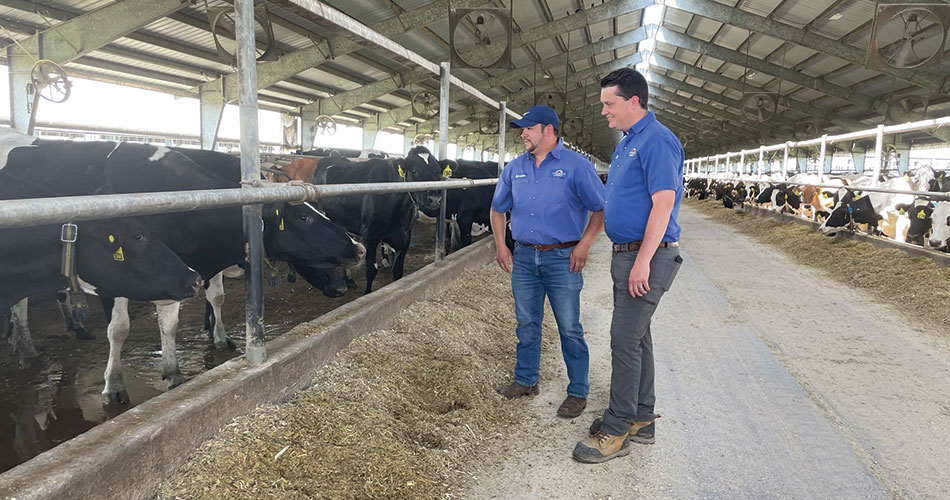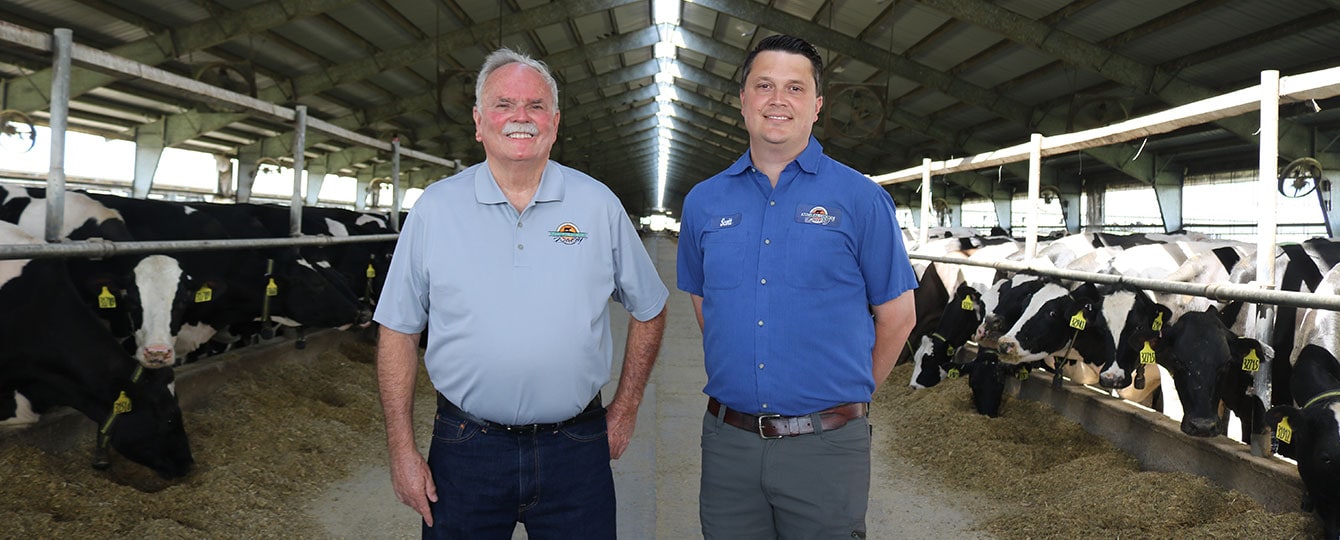The Imboden Family
Dairy farmers from Alger, Ohio
Scott Imboden is a first generation dairy farmer. He and his father Les work closely with their team of employees to care for more than 5,200 cows on two farms in Hardin County, Ohio.
What makes your milking parlor unique?
Scott: In our milking parlor, we have something that’s a little different – we have a rotary parlor. Some people call it a carousel or a merry-go-round, but to the cows, it’s a circle where they’re able to one by one take a ride around this parlor while being milked. It takes about 8 minutes. This is a newer way of milking cows that we use for efficiency and cow comfort. The rotary allows us to milk nearly 600 cows per hour. It also makes sure that the cow gets back to her pen for fresh feed and water as soon as possible afterwards.

How do you ensure the cow manure from your farm doesn’t end up in streams, rivers and lakes?
Scott: My family and I live next to the dairy here in Northwest Ohio, and we have well water that comes right from the same water table as this dairy. If I didn’t think that it was safe to drink, we wouldn’t be living there. We have several storage facilities here that allow us to store up to one year’s worth of manure so that we can apply it when the timing is right. We use trucks or hoses to move the manure safely and quickly to the correct field. Manure is full of nutrients and applying too many nutrients to a field can cause those nutrients to end up in streams, rivers and lakes. It is our goal to ensure that does not happen, so we only apply what the land and the plant needs. It is not a matter of what’s easiest or what’s closest, it’s a matter of which fields need what and how much. We treat the manure more like fertilizer than just a waste or a byproduct.
HEAR FROM THE FARMER
Hear Scott Imboden explain why his dairy farm would not be successful without his team of employees.
Does having a larger farm impact the way you care for your cows?
Les: When you are self-employed like we are, you lay awake at night worrying about things. You worry about people, you worry about cows, you worry about the weather. Just because this is a large farm, it’s not run by an absentee owner or a big corporation. No, it’s us, and we’re accountable for everything that could go wrong or does go wrong.
Scott: Every cow matters – every single drop of milk is important. I think many times folks get a little bit nervous about having a really large farm and a lot of cows in one place. But the number of cows we have allows us to employ a number of professionals to make sure they are well taken care of.
How do you ensure the milk that leaves your farm is safe?
Scott: We have many protocols to keep milk clean and fresh. We do things under the very close watchful eye of the FDA. They have specific rules in place that we must follow to ship fresh Grade A milk. If we do not meet those specifications, we are simply not allowed to ship that milk. To ensure every drop of milk that we ship meets or exceeds those standards, we have on-site testing that our team uses to ensure that it is free of antibiotics, as well as the right temperature to preserve freshness and quality. We only want milk to leave our farm that we would drink ourselves.

Learn more about Natural Choice Dairy and their manure management practices or meet more Ohio and West Virginia dairy farmers.

